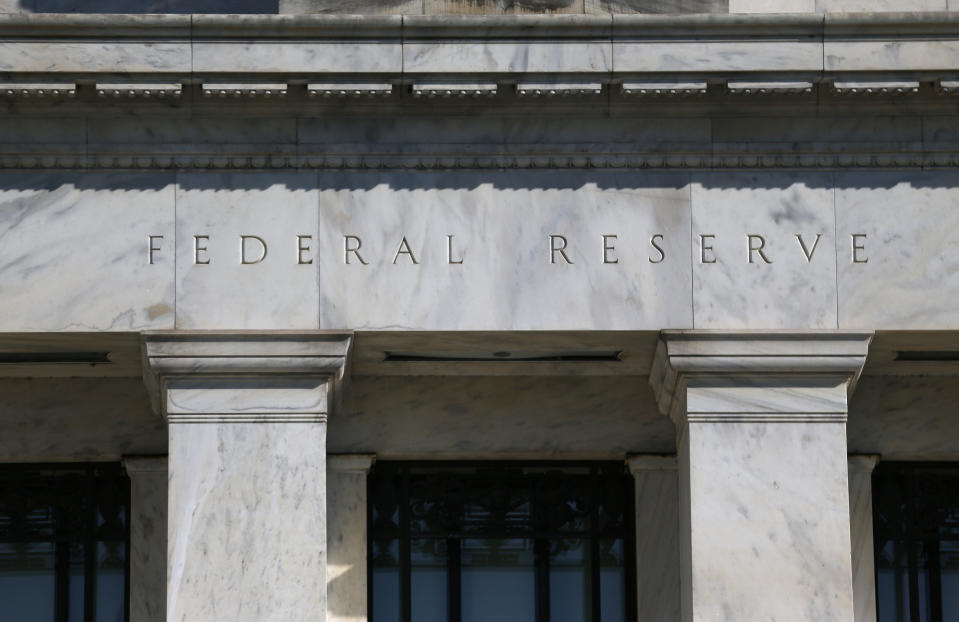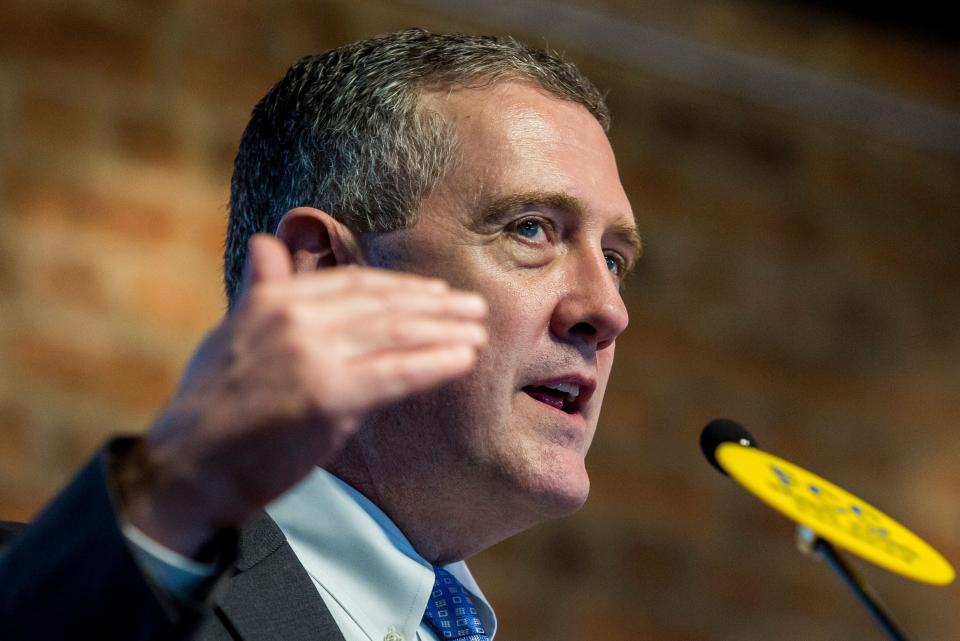Why this week is a big deal for the Fed
The Federal Reserve is facing an existential crisis, and this week could provide clues into how the central bank can tweak its approach to monetary policy to better address the next potential crisis.
Key policymakers are meeting in Chicago Tuesday and Wednesday to see if there are ways to better target the Fed’s dual mandate of price stability and maximum employment. Nearly everything appears to be on the table, from the way it targets its 2% inflation goal to its assessment of labor market conditions to the future use of quantitative easing.
Half of this year’s voting members - including Fed Chairman Jerome Powell - are scheduled to speak at the conference.
The discussions could prove critical to the next chapter of monetary policy, as questions linger over whether or not the Fed is finished raising rates in this cycle.
Although the Fed is not expected to announce the findings of its review until 2020, the Chicago conference is offering a glimpse into how those inside the central bank are thinking about the successes - and failures - of the current monetary policy framework and how they can improve it.
Fed watchers are all dialed in closely.

“Market participants will be closely attuned to what comes out of Chicago as the conference should give policy watchers greater guidance on what potential changes could be in store over the coming years,” Wells Fargo’s Sam Bullard wrote June 2.
Preparing for the next crisis
At the core of the debate: whether or not the Fed will have its back up against the wall in the next crisis.
Policymakers have paused interest rate hikes at the current target range of 2.25% to 2.5%, raising concerns over whether or not the Fed is working with too small a buffer to counter the next recession. For comparison, the Fed drained the federal funds rate from 5.25% to 0% - in addition to multiple rounds of quantitative easing - to fight the 2008 financial crisis.
Papers released ahead of the conference suggest that the Fed has its hands tied with rates as low as they are right now. A paper from James Stock, Janice Eberly and Jonathan Wright argues that the Fed actually needed to lower rates to about -5% to pull the economy out of crisis.
But the Fed isn’t about to raise interest rates just for the purposes of giving themselves enough ammo to save the economy in the next crisis. As it is, the economy is already at a tipping point where Fed policymakers are waffling over whether or not conditions warrant cutting or raising interest rates.
The Fed is questioning whether or not it is appropriately assessing the economy’s capacity for higher or lower interest rates using its existing framework. Another paper from Katharine Abraham and John Haltiwanger criticizes the Fed’s current preferred measures of unemployment and the unemployment gap for ignoring the dynamic nature of how the unemployed search for work.
And another paper from Maurice Obstfeld raises questions about how much consideration should be given to global financial conditions in the Fed’s modeling, amid increasingly intertwined financial relationships among the world’s nations.
All of those topics will be discussed in addition to the well-debated subject of inflation targeting, as the Fed continues to undershoot its 2% target.
Noisy week of Fedspeak
The Chicago conference is longer-term focused but could provide some clues as to how policymakers are also thinking about the appropriate move on rates over the next few months.
For example, Fed speakers’ views on the proper way to target inflation could suggest different vantage points on whether or not the current inflationary pressures are too muted.
St. Louis Fed President James Bullard, who has advocated for a different inflation targeting scheme that aims at nominal GDP growth, said Monday that global trade disputes and “too low” inflation expectations may warrant a rate cut “soon.” Bullard, a voting member, has been most vocal about a cut and told reporters Monday that the Fed “could also take out some insurance against slower than expected growth.” He did not add detail on when he felt that cut would be appropriate.

“I wouldn’t want to prejudge the June meeting, I’d be anxious to hear what my colleagues think,” Bullard said, referring to the next policy-setting meeting on June 19.
Those at the top of the Fed have been more mum about the next move. Fed Chairman Jerome Powell and Vice Chairman Richard Clarida have not said if the current risks tilt to a rate cut or a rate hike, continuing to emphasize that the central bank remains “data-dependent” and sees low inflationary pressures as “transitory.”
Plenty of other Fed officials will round out the busy week of Fedspeak this week. Richmond Fed President Thomas Barkin, New York Fed President John Williams, Atlanta Fed President Raphael Bostic, and San Francisco Fed President Mary Daly are scheduled for public speeches.
—
Brian Cheung is a reporter covering the banking industry and the intersection of finance and policy for Yahoo Finance. You can follow him on Twitter @bcheungz.
Fed: Tight labor market 'did little' to narrow economic disparities
The 'naked' short: how it helps an IPO from plummeting on day one
Regulator tells banks to watch out for leveraged loans
Minneapolis Fed's Kashkari: 'Monetary policy has been too tight'
Congress may have accidentally freed nearly all banks from the Volcker Rule

